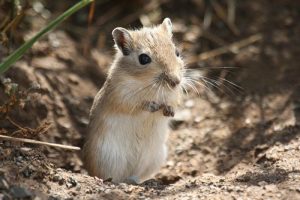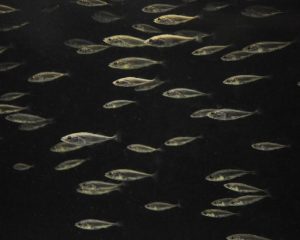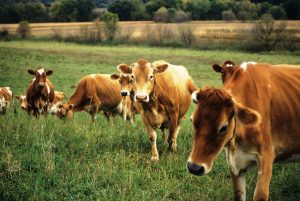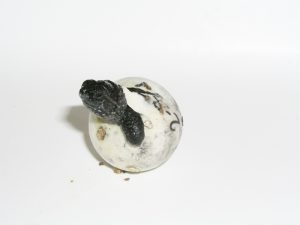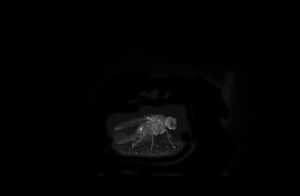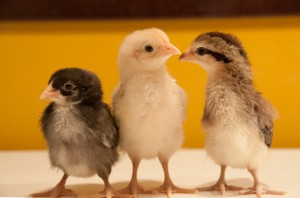Enter your address to receive notifications about new posts to your email.
Articles tagged Complex Traits & Quantitative Genetics
(29 results)
-
Heights and pitfalls in detecting polygenic adaptation
Identifying signatures of polygenic adaptation is getting easier—but a commentary calls for caution in drawing conclusions. If you’ve ever wished for a stepstool so you could see the stage at a crowded concert, or, conversely, if you’re tired of being asked “How’s the weather up there?”, you’ve likely pondered what makes some of us tall…
-
Get outbred: Genetic diversity in laboratory gerbils
Biologists rely on animal models to answer important questions that can’t be addressed with cells in a dish. Often, these animals are deliberately inbred; a less diverse population of animals means that data obtained from experiments with these animals will be less noisy and easier to interpret, so fewer animals are needed for meaningful results.…
-
#TAGC16 Shorts: Mitonuclear interactions
Guest post by Mathieu Hénault. #TAGC16 Shorts are brief summaries of presentations at The Allied Genetics Conference, a combined meeting of seven genetics research communities held July 13-17, 2016 in Orlando, Florida. Most traits are controlled by more than one gene, and interactions between the effects of genes (GxG) can modify phenotypes in a non-additive…
-
Complex Traits and Simple Systems: An Interview with Leonid Kruglyak
Sometimes, the most useful scientific tool is a unique perspective. Leonid Kruglyak is a remarkable example of that fact. He originally trained as a physicist, and his quantitative background was foundational to his successful career in genetics and genomics. Kruglyak’s work focuses on the transmission of complex traits and the genetic basis of phenotypic variation. He…
-
Fish with robot friends: linking genes to behavior
The relative contributions of nature and nurture to behavior are a perennial source of dispute. That there is a genetic component is clear, but frustratingly, only a handful of specific genes are known to directly influence behavior in vertebrates. In the June issue of GENETICS, Greenwood et al. describe how they pinned down one of…
-
Milking the Data: How genomic selection herded in a breeding boom
Sometimes, great advances in science come from combining the old with the new. Genomic selection is one such case; in 2001, Meuwissen, Hayes, and Goddard surveyed the changing landscape of genetics, had the foresight to work on a then-theoretical problem, and laid the foundation for a boom in biotechnology-assisted breeding that continues to this day.…
-
First gene linked to temperature-dependent sex determination
The sex of many reptile species is set by temperature. New research reported in the journal GENETICS identifies the first gene associated with temperature-dependent sex determination in any reptile. Variation at this gene in snapping turtles contributes to geographic differences in the way sex ratio is influenced by temperature. Understanding the genetics of sex determination…
-
Leonid Kruglyak honored with 2016 Novitski Prize
Leonid Kruglyak (HHMI/University of California, Los Angeles) has been awarded the 2016 Edward Novitski Prize for his extraordinary level of creativity and intellectual ingenuity in the solution of significant problems in genetics research. “Dr. Leonid Kruglyak has been a pioneer in human genetics for over 15 years…. he continues to pose questions and do experiments…
-
Genetics Society of America awards Detlef Weigel the 2016 GSA Medal
Detlef Weigel (Max Plank Institute for Developmental Biology, Tuebingen) has been awarded the GSA Medal for his outstanding contributions to the field of genetics in the last 15 years. “Detlef’s blend of biology, genetics, and genomics technology has been key to many advances at the intersection of modern plant developmental and evolutionary biology”, said…
-
The evolution of Dark-fly
On November 11, 1954, Syuiti Mori turned out the lights on a small group of fruit flies. More than sixty years later, the descendents of those flies have adapted to life without light. These flies—a variety now known as “Dark-fly”—outcompete their light-loving cousins when they live together in constant darkness, according to research reported in…
-
Anxious chickens as a model for human behavior
Chickens that “chicken out” in unfamiliar surroundings may shed light on anxiety in humans, according to research published in the January 2016 issue of the journal GENETICS. Domestic chickens are much less anxious than their wild cousins, the red junglefowl. The new research identifies genes that contribute to this behavioral variation and reveals that several…



